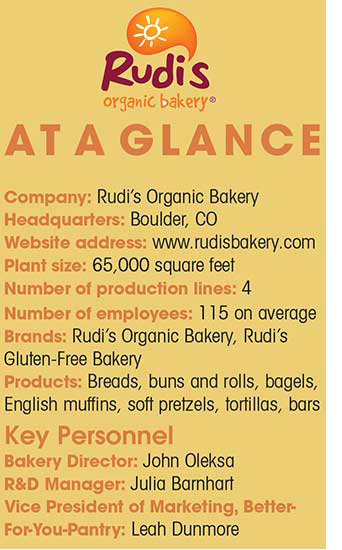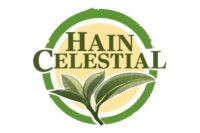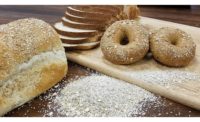When Sheldon Romer opened his small bakery in Boulder, CO in 1976, he sought to offer nutritious, preservative-free breads and other baked goods to a local audience yearning for authenticity—people who were seeking a deeper connection to their food.
Romer traveled a path that led to kosher certification in 1981, and Rudi’s began to make a name for itself, gaining wider attention as a top natural bakery brand. In the ensuing years, Rudi’s started using organic ingredients, working toward organic certification well before federal regulators established the National Organic Program. In the process, he was laying the groundwork for an iconic national brand.
Rudi’s Organic Bakery is still based in Boulder—and the brand still resonates with an ever-growing group of consumers seeking natural, authentic baked goods. But now the national consciousness has caught up with the ideals that grounded Rudi’s in the 1970s. Today, the brand’s reach extends from coast to coast as one of the nation’s leading certified-organic bread brands.
Something old, something new
While the size and scope of Rudi’s Organic Bakery has grown significantly over the years, many aspects of the business have remained the same.
“We’ve remained very consistent in terms of the high-quality products that we deliver,” says Leah Dunmore, vice president of marketing, better-for-you pantry at The Hain Celestial Group. Rudi’s still holds true to its natural, organic, non-GMO heritage.
Over the course of its history, Rudi’s has only operated out of one other location besides its current 65,000-square-foot bakery, notes John Oleksa, bakery director of operations.
Since 2014, Rudi’s Organic Bakery has been part of The Hain Celestial Group—a relationship that helps the bakery reach a much-wider audience, providing distribution, capital and operational efficiencies other bakeries of a similar size cannot match. And the U.S. is hungry for more natural, organic, non-GMO bakery products.
“As more consumers become educated about where their food comes from, and the ingredients in those products, there continues to be a growing demand for organic products, and this holds true for organic baked goods,” says Dunmore. “Looking to the future, we believe there is a great deal of opportunity for continued expansion of the Rudi’s Organic Bakery brand as more consumers look to swap everyday conventional staples, like bread, for organic varieties.”
Rudi’s Organic Bakery offers a wide range of retail baked goods, including several types of bread, hamburger buns, hot dog rolls, bagels, English muffins and tortillas, along with an expanding range of gluten-free baked goods, including bread, tortillas and cherry almond bars. Most of the gluten-free lineup is sold frozen, but Rudi’s recently expanded into offering shelf-stable gluten-free breads. Multiple better-for-you, nutrition-focused products exist in the lineup. In total, Rudi’s offers nearly 60 regular SKUs to the nation.
“Hain Celestial brings to Rudi’s Organic Bakery brand the support of a world-class marketing organization with extensive experience in developing and growing natural and organic, better-for-you brands,” says Dunmore. “In addition, Hain has strong sales relationships with top retailers, providing an opportunity to grow Rudi’s Organic Bakery distribution and presence with retailers across the country.”
The efficiencies Hain Celestial brings to Rudi’s Organic Bakery continue to help expand the brand. “We are working on expanding nationwide distribution into more retailers,” says Dunmore.
While Rudi’s does some work for foodservice, it’s primarily a local aspect of the business. The bakery does work with retailers of various sizes to develop unique private label lines that are differentiated from the bakery’s core product lineup. “We definitely want to keep our private label business different from our branded business,” says Dunmore.
An increasing range
Both the organic and gluten-free lineup is available nationwide in natural and mainstream supermarkets, but the brand still resonates strongly with its local audience. “Colorado, where the brand was born and raised, and where our products are still manufactured today, continues to be our strongest market thanks to our loyal consumers and hometown support from Boulder,” says Dunmore. “While organic consumption continues to grow across the U.S., the East and West Coasts have traditionally been particularly strong markets for Rudi’s Organic Bakery products due to their early and robust adoption of organic products.” She also notes that the brand has recently seen greater penetration in the Northeast.
“Recently, there has been an explosion of better-for-you and clean-label products, including organic, non-GMO, gluten-free, no artificial colors/flavors, or other additives,” says Julia Barnhart, R&D manager. “Most recently, within the better-for-you category, seeded and multigrain breads are seeing a lot of growth, and we have a variety of products that meet these trends.”
The Super Seeded Bread from Rudi’s Organic Bakery includes sesame seeds, sunflower seeds, flaxseed, black sesame seeds, pumpkin seeds and poppy seeds with 15 grams of whole grains per serving. Its Mighty Grains bread also includes sunflower seeds, flaxseed and pumpkin seeds, and features cracked wheat, oats, rye, millet, barley and kamut to deliver 17 grams of whole grains per serving.
Rudi’s Organic Bakery also recently launched two Community Grains “seed to table” breads—Hungry Hollow and Sacramento Valley. Community Grains seeks to improve supply-chain traceability through partnerships with local grain farmers, and consumers can trace the grain used in each loaf back to the farm where it was grown. Both breads use wheat grown by sixth-generation California farmer Fritz Durst, a pioneer in agricultural conservation.
“It’s very important for us to know where our ingredients are coming from, and to know that we’re using high-quality ingredients,” says Dunmore. “Then we want to be able to share that story with our consumers.”
Organic bread is an expanding market, and the bakery released a new line specifically designed for the youth market in 2015, available in Soft White and Soft Wheat. The products feature small, thin slices suited to easy handling by children. It’s the first nationally available organic bread made specifically for kids.
Honey is a sweetener of choice for several products, including its Honey Sweet Whole Wheat and Sprouted Honey Wheat breads. And that honey also helps tell a story. “We support The Xerces Society, which is an organization that helps protect pollinators like bees,” says Dunmore.
Some of the most-popular Rudi’s Organic Bakery products are the Honey Sweet Whole Wheat, 100% Whole Wheat and Country Morning White organic breads. On the gluten-free side of the business, the Original and Multigrain breads hit the top of the list.
Rudi’s is currently reformulating its gluten-free breads, which will launch this year. “We’re using a reformulated flour blend, which is yielding our best-tasting and fluffiest gluten-free breads yet,” says Barnhart.
“We found an opportunity to improve upon our current formula to deliver our gluten-free consumers what they’re looking for—gluten-free bread that tastes like real bread,” says Dunmore. “Our new and improved formulas get even closer to the traditional organic bread profile in terms of texture, softness, chew and taste.”
The reformulated gluten-free Original and Multigrain breads will be sold in the bread aisle—in a traditional bread bag—and have up to a 10-day shelf life at ambient temperatures, notes Dunmore.
Expanding efficiencies
All of Rudi’s organic and gluten-free products start with ingredients batched in the bakery. The larger-scale organic process benefits from use of automated flour delivery, stored in silos and metered for each production run.
Rudi’s Organic Bakery has worked to bring full traceability into the operation. “We track everything from the time it’s brought in to the time it’s used in the product,” says Oleksa. “We have the ability to trace back every ingredient all the way through our supply chain in line with FSMA guidelines.”
Organic and gluten-free production is segregated into distinct sanitary zones within the bakery. While the organic side of the bakery is highly automated, gluten-free production still requires a few key points of hand touch.
Over the years, Rudi’s has improved its production process to maximize throughput. “We’ve increased efficiencies and line speeds to boost our capacity,” says Oleksa. He notes line upgrades have also been made to streamline the consistency of the products, keeping them within tight specifications.
“We’ve done a really good job of improving our yields and minimizing our waste, making the process more consistent and solving downtime issues,” says Oleksa. He notes that the bakery upgraded its slicing and bagging equipment in 2016 to improve performance.
While Rudi’s maintains is own fleet of trucks for local direct-store delivery, it contracts with a third party for offsite frozen storage and national distribution.
In order to support its staff, Rudi’s Organic Bakery works with employees to foster ongoing workforce development, offering both in-house training and partnering with local institutions. Hain Celestial brings additional efficiencies to this process, since it operates two other production facilities in Boulder—Celestial Seasonings tea and Westsoy tofu—and can synergize training opportunities across those operations.
The established network Hain Celestial provides helps Rudi’s think big. “We’re looking into the next innovations for bread—whether organic or gluten-free,” says Dunmore. “We’re running consumer insights panels currently and are doing concept testing to make sure that we’re making products that our consumers want.”
Organic bread is on a track to see increased demand in the coming years from a growing consumer base hungry for baked goods with integrity, and Rudi’s Organic Bakery is poised to deliver.











